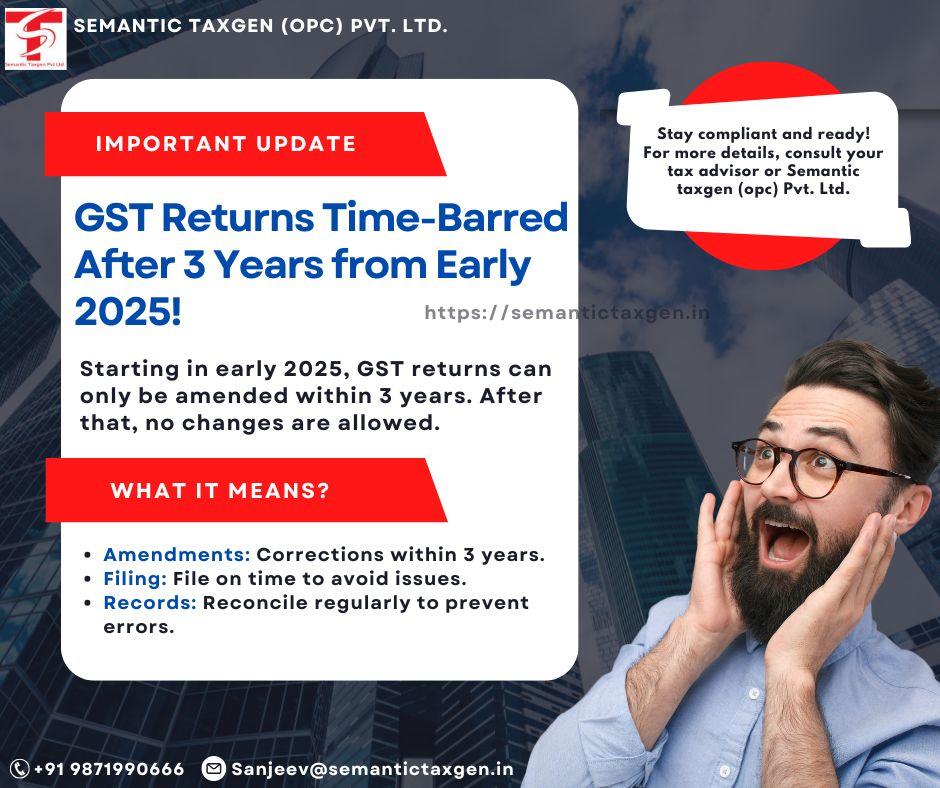
A new reform made by the Government of India in the GST regime that will affect all the taxpayers has been announced as of late. From the earliest of January 2025, GST returns will be barred by time, three years from the date they were due. This regulation is expected to assist in the simplification of the process of taxation and the administration of taxes and also provide time-bound compliance measures in businesses to assure that the record of taxes is consistent and available as when needed.
as adopted in the new time-bar rule, any GST return filed will be time barred with a period of three years from the date of filing of the return. Subsequent to this period, the taxpayer cannot make changes, file a late tax return or make adjustments on any payment with relation to that return. This amendment is envisaged to keep redundant tax filings and actual return submissions from taking insufficient amounts of time.
Example: If a GST returns for FY 2024-25 is lodged on July 20, 2025, Then it may be amended up to July 20, 2028. Once past this date, it is time-barred, meaning that nothing can be changed.
The primary objective of the 3-year limitation is to:
To avoid complications arising from time-barred returns, taxpayers should:
This rule will apply across all GST forms, including GSTR-1, GSTR-3B, GSTR-9, and GSTR-10. Taxpayers should be particularly attentive to yearly reconciliations and maintain compliance within this stipulated timeframe.
The government may provide certain exceptions for cases under investigation or litigation, but these specifics will likely be detailed further in the official guidelines released in early 2025. It is expected that only genuine cases of dispute or special circumstances will be exempt from this rule.
The introduction of the 3-year time-bar rule for GST returns starting in 2025 is a critical change in India’s tax administration. Taxpayers will now have a definitive period to adjust their returns, promoting accuracy and efficiency in the system. Staying updated with these changes and following a disciplined approach to GST compliance will help taxpayers avoid penalties and maintain a smooth compliance experience.
This rule emphasizes the importance of timely GST compliance and encourages taxpayers to maintain accurate records, minimizing future complications and enhancing transparency in the tax process.
DISCLAIMER: The information provided in this article is intended for general informational purposes only and is based on the latest guidelines and regulations. While we strive to ensure the accuracy and completeness of the information, it may not reflect the most current legal or regulatory changes. Taxpayers are advised to consult with a qualified tax professional or you may contact to our tax advisor team through call +91-9871990777 or info@semantictaxgen.in
© 2013-25 Semantic Taxgen Pvt Ltd - All Rights Reserved